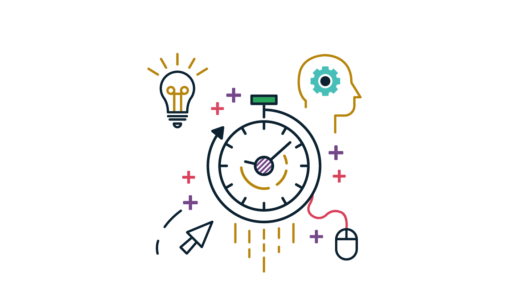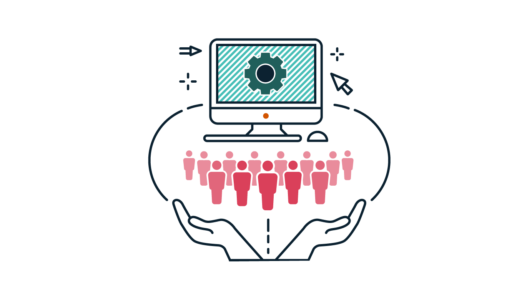Future Digital Inclusion
As the largest digital inclusion programme in the UK, this partnership with the Department for Education used the community reach of the Online Centres Network to support some of the hardest to reach groups in society, engaging them in digital.

Over 80% of those supported by the project say they have progressed to further learning

66% of people supported have progressed to employment-related activity

1 million people have been supported to learn basic digital skills
Delivered by Good Things Foundation and funded by the Department for Education, the project has helped over 1.4 million people improve their lives through digital since 2014.
The project had a particular focus on learners with low skills and confidence, as more than 80% of those supported face one or more barriers related to social exclusion.
Future Digital Inclusion provided tailored support to individuals, with a focus on motivation and equipping learners for long-term sustainable use of digital. This approach helped learners progress to further learning and positive employment outcomes.
FDI’s target audiences
Unemployed people are a core audience for the programme this year, with 31% of learners identifying themselves as unemployed and 4 out of 10 job-seekers attending a UK online centre doing so following a referral from a Jobcentre or Work Programme provider.
Baseline skills for unemployed learners are slightly higher than the average learner, and they tend to be looking for support with specific online activities like CV upload, job search and application. 56% of unemployed learners don’t have the skills required to complete an online form, and 24% had neither home or personal (i.e. smartphone) internet access to an internet-connected device when they started learning.
85% of unemployed learners were using the internet to find work, but also cited other interests including work-related learning (63%), using local and national government services (39%) and finding health information (37%).
People with low skills are another key group of the Future Digital Inclusion programme – defined as those educated below Level 2: 63% of all learners and 59% of working-age learners had undertaken no learning or training – including informal or non-accredited learning – in the three years before attending the centre, suggesting that centres are playing an important role in re-engaging learners and breaking a cycle of exclusion from education.
Younger learners are more interested in accessing a broad range of support from their UK online centre, including literacy and numeracy, as well as studying towards a qualification.
Thanks to support from the programme, learners are able to better manage housing issues (55%), to manage money and changing financial circumstances (50%), and have greater independence (67%). 71% of learners report increased confidence.
Another key audience of the Future Digital Inclusion project was disabled people.
Disabled people are more likely to be educated below Level 2, to be in income poverty and to live in social or sheltered housing. Overall, they are much more likely to meet at least one social exclusion criterion.
Interests tend to focus on online activities like shopping, banking and budgeting, but with significantly higher interest with using the internet to keep in touch with family and friends, to find health information and to access government services.
Disabled learners are less likely to have access to access to the internet at home, and so their skill levels tend to be lower. However, progression for these groups is impressive, with 84% progressing to further learning. This group also report feeling less isolating and reporting increased independence following the support they receive from UK online centres.
Programme evaluation findings reports
Background research reports for BIS Future Digital Inclusion
To supplement internal data on the impact of the Future Digital Inclusion programme, Good Things Foundation commissioned independent research agency Just Economics to carry out research in 2016.
The findings from this report provide a detailed picture of how digital skills training is being embedded in community support programmes by a wide range of Online Centres.
